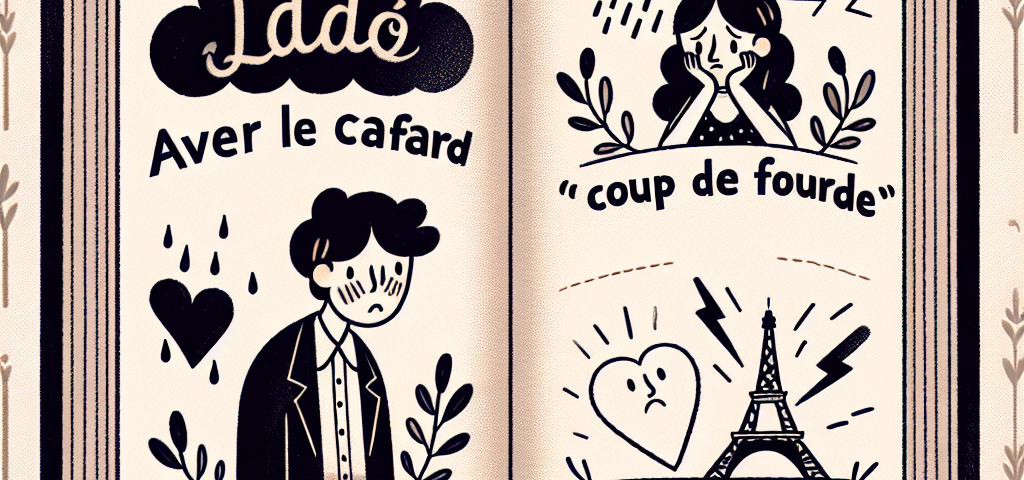
Get Fluent Fast: Fun Ways to Expand Your French Vocabulary
May 28, 2025
Speak Like a Local: Beginner-Friendly French Grammar Lessons
May 28, 2025
Language is not merely a tool for communication; it’s a window into the culture, history, and psyche of its speakers. French, with its rich history and artistic prominence, is replete with idiomatic expressions that not only embellish everyday conversations but also offer deep insights into the French way of thinking. In this article, we explore some captivating French idioms, dissect their meanings, and provide context to help you impress your friends and colleagues.
Avoir le cafard
Meaning:
Literally translated, "avoir le cafard" means "to have the cockroach." However, the real essence lies in its metaphorical use: it describes a feeling of melancholy or the blues.
Context:
Imagine a rainy Parisian afternoon, the city’s usual vibrancy filtered through gray clouds. This idiom encapsulates that feeling of despondency, akin to the English phrase "to feel down." French speakers often use it casually, so if you find yourself in a conversation about feeling under the weather, this idiom can perfectly connote that emotional state.
Usage:
"Après la rupture, elle avait vraiment le cafard."
(“After the breakup, she was really feeling down.”)
Coup de foudre
Meaning:
Directly translating to "a bolt of lightning," this idiom refers to a sudden, intense love or an instantaneous attraction.
Context:
French culture celebrates love in its myriad forms—through literature, music, and cinema. "Coup de foudre" embodies that enchanting feeling of falling in love at first sight. Its dramatic imagery conjures the overwhelming experience of passion that can strike unexpectedly.
Usage:
"Il a eu un coup de foudre pour elle dès qu’il l’a vue."
(“He fell in love with her at first sight as soon as he saw her.”)
Mettre son grain de sel
Meaning:
Literally, “to put one’s grain of salt,” this idiom means to add one’s opinion or meddle in a situation—often unnecessarily.
Context:
The idiom suggests that everyone has their input, even when it might not be wanted or needed. This expression often comes into play during discussions, especially in groups, where someone’s advice may be seen as unsolicited.
Usage:
"Dans cette réunion, elle a vraiment mis son grain de sel alors qu’elle n’était pas concernée."
(“In that meeting, she really added her two cents even though she wasn’t involved.”)
Faire le poirier
Meaning:
Translated as “to do a headstand,” this idiom is not about gymnastic feats, but rather describes a situation where someone is trying to get attention, to attract notice, or to be the center of focus.
Context:
In a world where social media and personal branding reign, this phrase speaks to the lengths some may go to in order to be recognized. It also conveys a touch of playful sarcasm, mirroring the French spirit of wit.
Usage:
"Ce n’est pas la peine de faire le poirier pour se faire inviter."
(“There’s no need to show off to get an invitation.”)
Bouger les lignes
Meaning:
This idiom translates to “to move the lines” and refers to making changes or altering the status quo.
Context:
In personal and professional contexts, “bouger les lignes” speaks to innovation, creativity, and the drive to push boundaries. It encourages embracing change and adaptability.
Usage:
"Pour progresser, il faut parfois bouger les lignes."
(“To make progress, sometimes you have to shake things up.”)
Conclusion
French idioms offer a colorful tapestry of expressions that add depth and flair to the language. From feelings of melancholy to electrifying love, each phrase carries cultural weight and historical significance. By incorporating these idioms into your conversations, you not only enhance your linguistic skills but also connect deeper with the nuances of French culture. So the next time you find yourself in a discourse, don’t hesitate to sprinkle in some of these expressions—your audience will be impressed!

